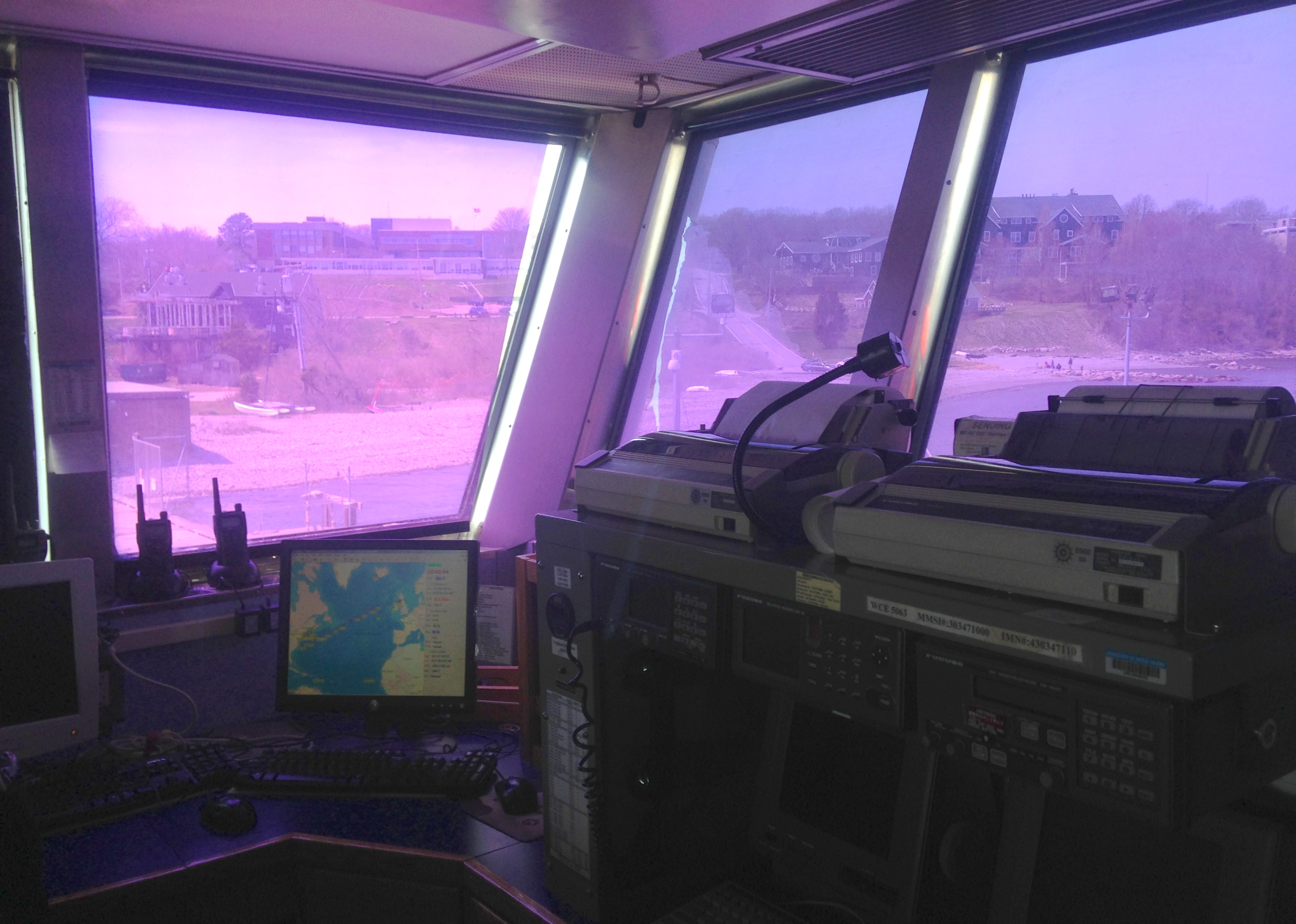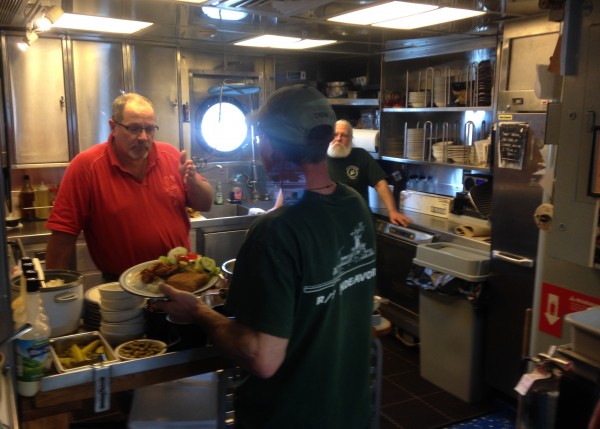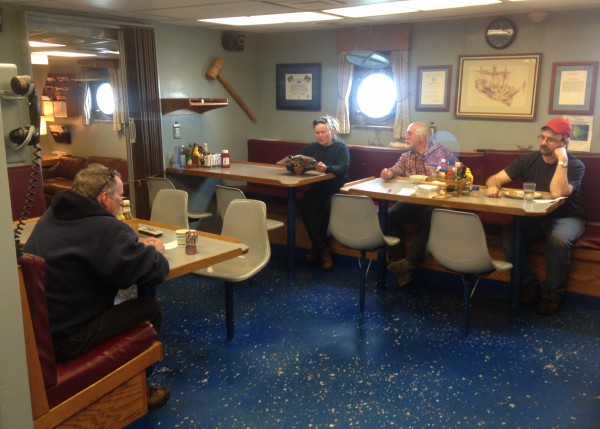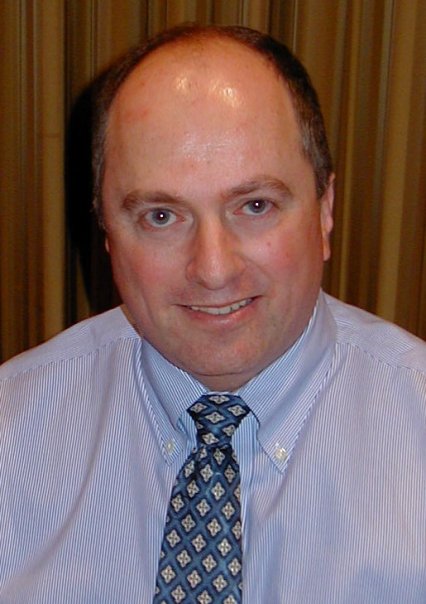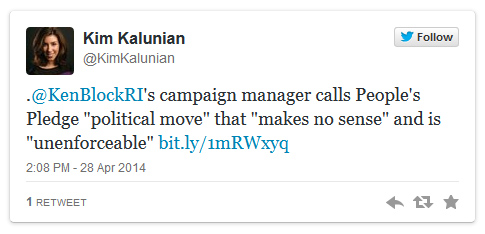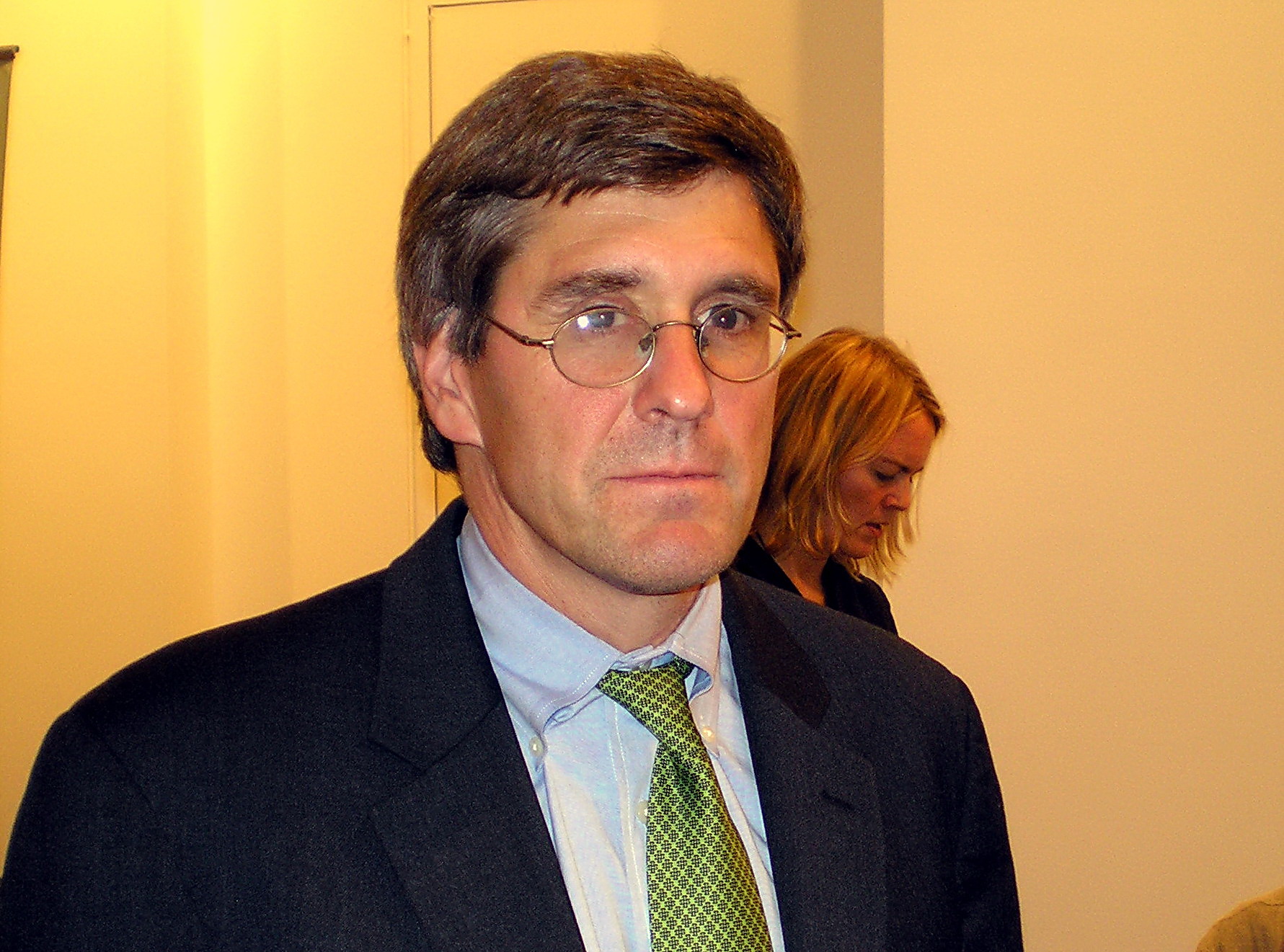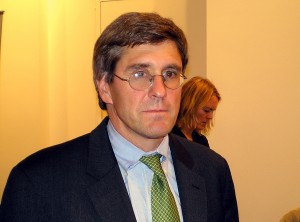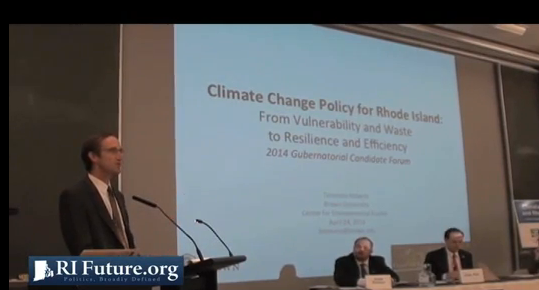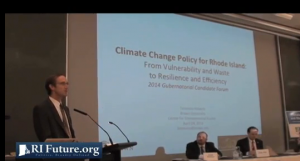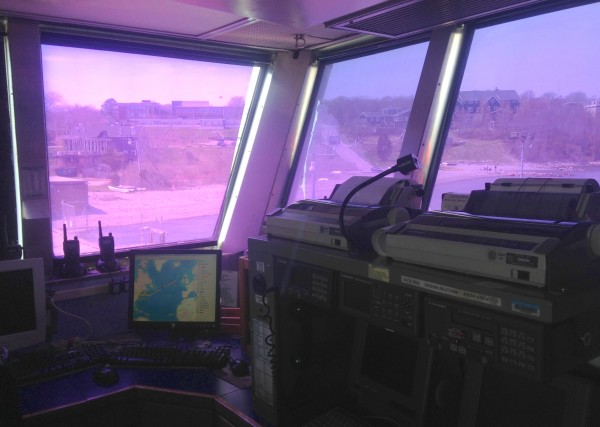
The RV Endeavor is one of the ways the Rhode Island is already a national center for studying climate change.
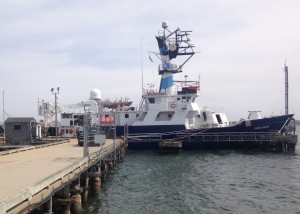 The 185-foot research vessel (or RV) is staffed by URI’s Graduate School of Oceanography and its home port, the Bay Campus. But it’s owned by the National Science Foundation, and it’s paid for and used by whomever happens to need to study planet Earth’s vast oceans.
The 185-foot research vessel (or RV) is staffed by URI’s Graduate School of Oceanography and its home port, the Bay Campus. But it’s owned by the National Science Foundation, and it’s paid for and used by whomever happens to need to study planet Earth’s vast oceans.
“We’re a charter boat for scientists,” said Second Mate Chris Armanetti.
Tuesday the Endeavor leaves on a 30-day trip to Iceland, where Princeton geoscientist Bess Ward will be studying how phytoplankton reacts to different forms of nitrogen. “Some of the kinds of phytoplankton that we think are really important are actually sucking carbon into the ocean,” Ward explains as she readies her equipment in the boat’s main lab for the long trip.
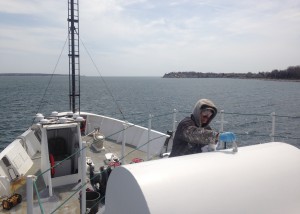 This is the second time her research has taken her aboard the Endeavor, which is one of 24 research vessels in the world equipped to help unlock such scientific mysteries, which Ward assured me are much more crucial than they sound in the abstract. “We care how our ocean ecosystems will respond to global change.”
This is the second time her research has taken her aboard the Endeavor, which is one of 24 research vessels in the world equipped to help unlock such scientific mysteries, which Ward assured me are much more crucial than they sound in the abstract. “We care how our ocean ecosystems will respond to global change.”
Her and eight grad students are traveling more than 2,000 nautical miles to study these phytoplankton at their richest, which is off the coast of Iceland in the North Atlantic during spring. They will be accompanied and assisted by the Endeavor’s crew of 12, who work in three shifts with four people on duty at any given time.
The Endeavor isn’t cheap to operate. Ward, whose grant is for $3 million, is paying URI $24,000 a day for its services.
“It’s important both scientifically and financially,” said Tom Glennon, the director of marine operations for the Graduate School of Oceanography, who said the Endeavor makes between 10 and 12 such trips a year.
“It’s a money spinner for the university, for sure,” said technician/crew member Bill Fanning.
Glennon and Fanning chatted over a catered lunch on the boat after two tractor trailer trucks worth of food were stored on the boat for the trip to Iceland and back. The Endeavor serves three meals a day, with dinner menus ranging from chili to filet mignon, while at sea.
There’s a small dining room, and an even smaller library with a few couches. And other than that, the creature comforts are few and far between. There are small bunk rooms in the hull, with cramped bunk beds in small rooms. Most share bathrooms.
The bulk of the boat is research space. There are three labs on the boat, and most of the deck is for lowering equipment into the depths of the ocean. The cable they were winding the day I visited could stretch 8,000 meters into the sea.
The Endeavor has been all over the world, save for the Indian Ocean. Recent trips include Peru, Hawaii and Scotland.
 “It’s driven by the science,” said Tom Orvosh, an technician and crew member. “It can get pretty intense at times, if the weather’s rough and people can’t get their work done.
“It’s driven by the science,” said Tom Orvosh, an technician and crew member. “It can get pretty intense at times, if the weather’s rough and people can’t get their work done.
Crew members say seasickness isn’t really a problem for visiting scientists because it usually passes after several hours.
The Graduate School of Oceanography has housed a world-class research vessel since 1962, when legendary dean John Knauss helped the school acquire the RV Trident. In 1977, it replaced the Trident with the Endeavor. The Endeavor was retrofitted in 1992, but it’s nearing the end of its tenure. Crew members said such boats are good for about 30 years, and that it would cost roughly $65 million to replace her.

